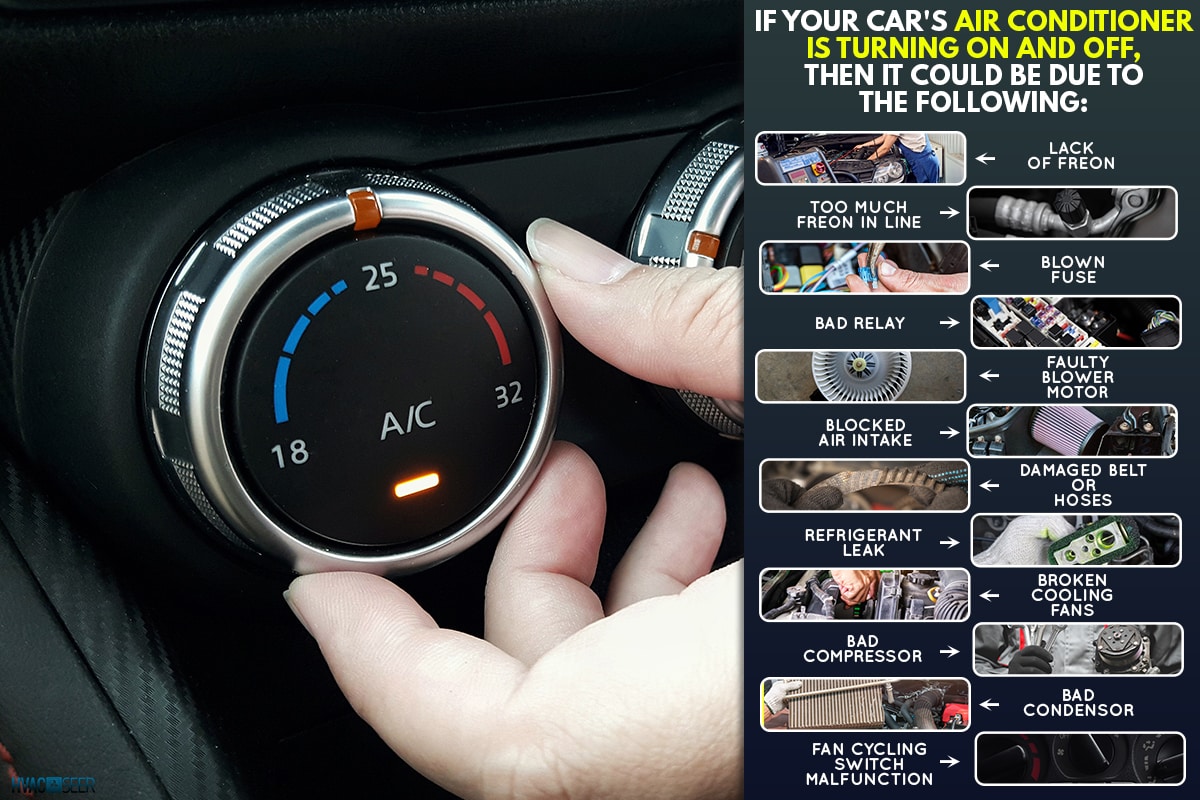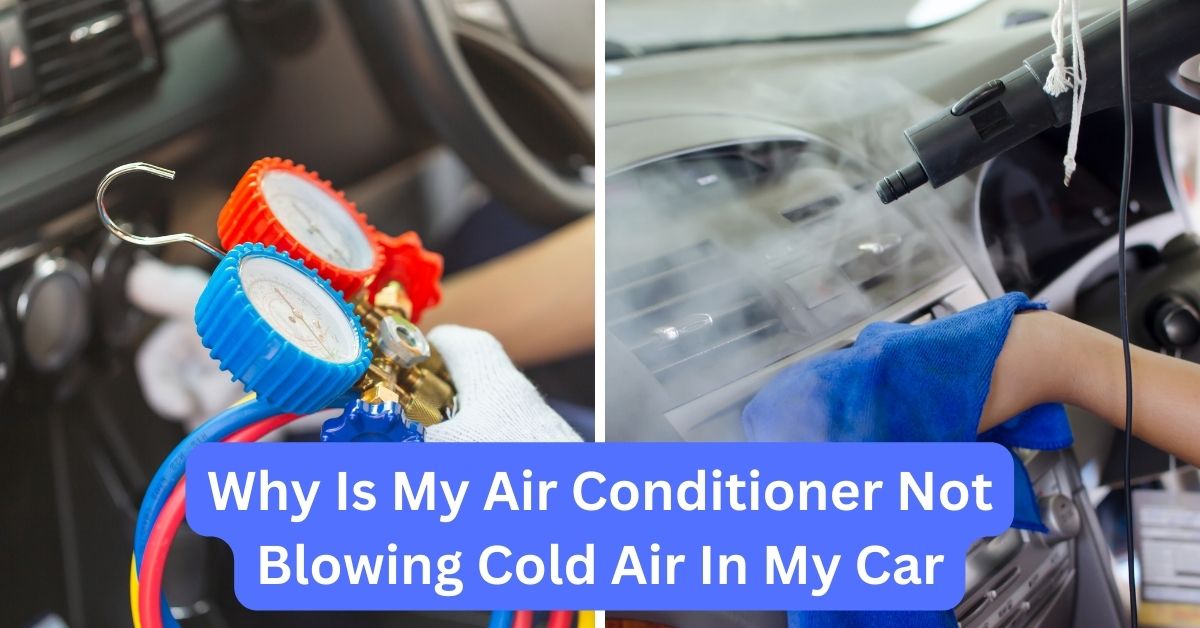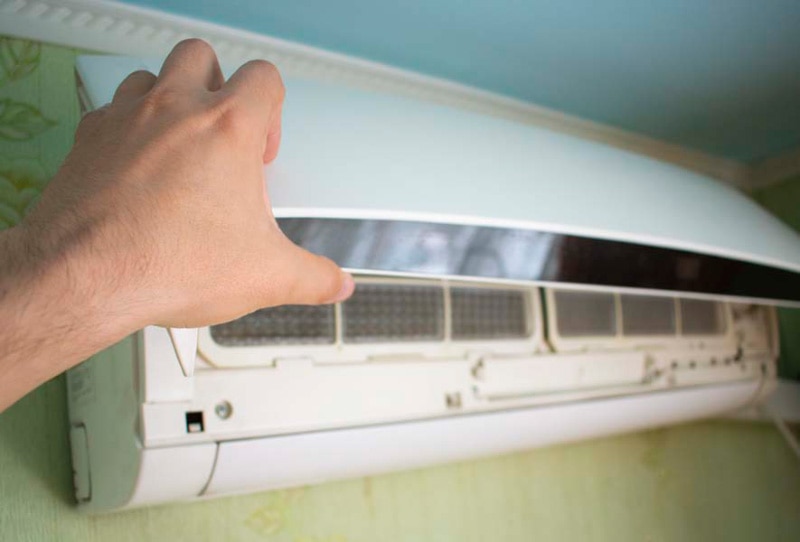Why Doesn't My Ac Turn On

The summer heat is relentless, and a functioning air conditioner is essential for maintaining a comfortable and safe home. But what happens when you flip the switch, and nothing happens? A non-responsive AC unit can be frustrating and, in some cases, a sign of a serious problem. This guide will walk you through the common reasons why your AC won't turn on, helping you troubleshoot the issue and determine the best course of action, from simple fixes to when it's time to call a professional. Understanding the potential causes can save you time, money, and unnecessary stress.
Common Reasons Your AC Won't Turn On
Several factors can prevent your AC from starting. We'll break them down into categories, starting with the simplest and most common culprits.
1. Thermostat Issues
The thermostat is the brains of your HVAC system, and if it's not working correctly, your AC won't receive the signal to turn on.
- Empty Batteries: This is the most common and easiest fix. Replace the batteries in your thermostat and see if that resolves the issue.
- Incorrect Settings: Ensure the thermostat is set to "Cool" and the temperature is set lower than the current room temperature. Double-check that the fan is set to "Auto" instead of "On" (unless you want continuous fan operation).
- Thermostat Malfunction: If replacing the batteries and checking the settings doesn't work, the thermostat itself may be faulty. Consider resetting your thermostat to its factory settings (consult your thermostat's manual for instructions). If that doesn't work, you may need to replace it. Modern smart thermostats, like those from Nest or ecobee, offer advanced features but can sometimes be more complex to troubleshoot.
2. Electrical Problems
Your AC unit requires a significant amount of power, and electrical issues can easily prevent it from turning on.
- Tripped Circuit Breaker: Locate the circuit breaker for your AC unit in your electrical panel. If the breaker has tripped (moved to the "off" or middle position), reset it by switching it all the way to the "off" position and then back to the "on" position. If the breaker trips repeatedly, it could indicate a more serious electrical problem, such as a short circuit or an overloaded circuit.
- Blown Fuse: Some older AC units may use fuses instead of circuit breakers. Check the fuse box for any blown fuses related to the AC unit and replace them with the correct amperage fuse.
- Power Outage: This might sound obvious, but sometimes a localized power outage can affect only certain parts of your home. Check with your neighbors or your utility company to see if there's a power outage in your area.
3. Condenser Unit Problems
The condenser unit is the outdoor component of your AC system. It contains the compressor, fan, and other essential components.
- Dirty Condenser Coils: Over time, the condenser coils can become clogged with dirt, debris, and leaves, reducing their ability to dissipate heat. This can cause the unit to overheat and shut down. Clean the coils regularly with a garden hose (gently) or a specialized coil cleaner.
- Blocked Airflow: Obstructions around the condenser unit, such as bushes, fences, or piles of leaves, can restrict airflow and cause the unit to overheat. Ensure there is adequate clearance (at least 2-3 feet) around the unit.
- Fan Motor Failure: The condenser fan helps to cool the refrigerant. If the fan motor fails, the unit will overheat and shut down. You may hear a humming sound but the fan won't spin, or the fan may be making unusual noises.
- Compressor Failure: The compressor is the heart of the AC system, and if it fails, the entire unit will be inoperable. Compressor failure is often a sign of a more serious problem and may require professional repair or replacement.
4. Refrigerant Issues
Refrigerant is the fluid that circulates through the AC system and absorbs heat. Low refrigerant levels or leaks can significantly impact performance.
- Low Refrigerant: If your AC unit is low on refrigerant, it won't be able to cool effectively, and the unit may eventually shut down. Low refrigerant is often a sign of a leak, which needs to be addressed by a qualified HVAC technician. Adding refrigerant without fixing the leak is only a temporary solution.
- Refrigerant Leak: Refrigerant leaks can occur in various parts of the AC system, such as the coils, lines, or connections. Leaks can be difficult to detect without specialized equipment.
5. Other Potential Problems
- Clogged Air Filter: A dirty air filter restricts airflow to the indoor unit (evaporator coil), causing it to freeze up. This can trigger a safety switch that shuts down the AC unit. Replace your air filter regularly (every 1-3 months) to prevent this problem.
- Frozen Evaporator Coil: As mentioned above, a clogged air filter is a common cause of a frozen evaporator coil. Other causes include low refrigerant levels and poor airflow. If you suspect a frozen coil, turn off the AC unit and allow the ice to melt completely before restarting it.
- Drainage Problems: The AC unit produces condensation, which needs to be drained away. A clogged drain line can cause water to back up and trigger a safety switch that shuts down the unit. Check the drain line for any blockages and clear them out.
- Safety Switches: Many AC units have safety switches that are designed to shut down the unit in case of a problem, such as overheating or high pressure. These switches can sometimes malfunction and prevent the unit from starting.
Troubleshooting Steps
Before calling a professional, try these troubleshooting steps:
- Check the Thermostat: Ensure it's set to "Cool," the temperature is set correctly, and the batteries are fresh.
- Check the Circuit Breaker: Reset the breaker if it has tripped.
- Check the Air Filter: Replace it if it's dirty.
- Inspect the Condenser Unit: Remove any obstructions and clean the coils.
- Look for Ice: If you see ice on the evaporator coil, turn off the unit and let it thaw.
When to Call a Professional
If you've tried the troubleshooting steps above and your AC unit still won't turn on, it's time to call a qualified HVAC technician. Some problems, such as refrigerant leaks, compressor failure, and electrical issues, require specialized knowledge and equipment to diagnose and repair.
Don't attempt to repair complex AC problems yourself. Doing so can be dangerous and may void your warranty.
Preventative Maintenance
Regular maintenance can help prevent many of the problems that can cause your AC unit to fail. Schedule annual maintenance with a qualified HVAC technician to ensure your system is running efficiently and safely. Maintenance typically includes:
- Cleaning the condenser coils
- Checking refrigerant levels
- Inspecting electrical connections
- Lubricating moving parts
- Checking the drain line
- Testing the system's performance
Choosing a New AC Unit
If your AC unit is old or beyond repair, it may be time to consider replacing it. When choosing a new AC unit, consider the following factors:
- Size: The size of the AC unit should be appropriate for the size of your home. An oversized unit will cool too quickly and cycle on and off frequently, wasting energy. An undersized unit won't be able to keep your home cool on hot days. Consult with an HVAC professional to determine the right size for your home.
- SEER Rating: The Seasonal Energy Efficiency Ratio (SEER) rating measures the cooling efficiency of an AC unit. A higher SEER rating indicates greater energy efficiency. Look for units with a SEER rating of 15 or higher. Many newer models offer SEER ratings of 20 or higher.
- HSPF Rating (for Heat Pumps): If you're considering a heat pump, also look for the Heating Seasonal Performance Factor (HSPF) rating, which measures heating efficiency.
- AFUE Rating (for Furnaces): If your system involves a furnace, consider the Annual Fuel Utilization Efficiency (AFUE) rating, which is a measure of a furnace's heating efficiency.
- Brand: Popular AC brands include Carrier, Trane, Lennox, Rheem, and Goodman. Research different brands and models to find one that meets your needs and budget. Carrier and Trane are often considered premium brands, while Goodman offers more affordable options. Rheem and Lennox provide a balance of features and price.
- Warranty: Check the warranty offered by the manufacturer. A longer warranty provides greater peace of mind.
Cost Considerations
The cost of a new AC unit can vary depending on the size, SEER rating, brand, and installation complexity. Expect to pay anywhere from $3,000 to $7,000 or more for a complete AC system installation. Get quotes from multiple HVAC contractors to compare prices and services. Remember to factor in the cost of installation, ductwork modifications (if needed), and any electrical upgrades that may be required.
Investing in a high-efficiency AC unit can save you money on your energy bills over the long term. Consider the long-term cost savings when making your decision.
Conclusion
A non-responsive AC unit can be a major inconvenience, but understanding the potential causes and troubleshooting steps can help you resolve the issue quickly. By following the advice in this guide, you can diagnose common problems, perform simple repairs, and determine when it's time to call a professional. Regular maintenance is key to preventing problems and extending the lifespan of your AC system. When it's time to replace your unit, consider factors such as size, SEER rating, brand, and warranty to make an informed decision.










